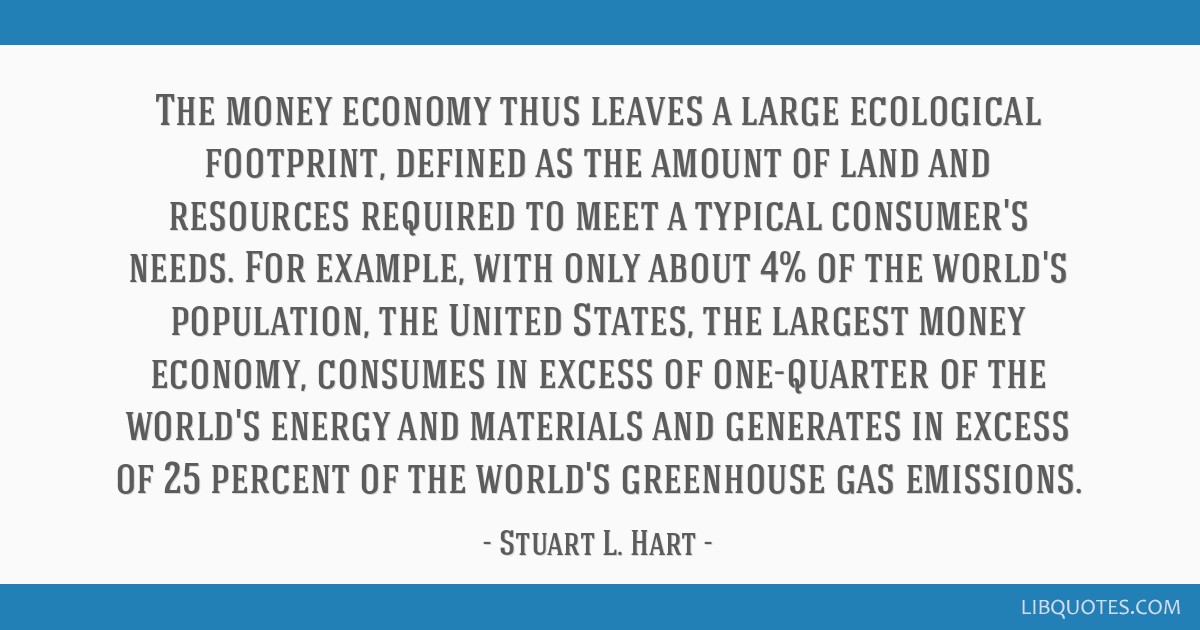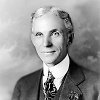The money economy thus leaves a large ecological footprint, defined as the amount of land and resources required to meet a typical consumer's needs. For example, with only about 4% of the world's population, the United States, the largest money economy, consumes in excess of one-quarter of the world's energy and materials and generates in excess of 25 percent of the world's greenhouse gas emissions.
Capitalism at the Crossroads: Next Generation Business Strategies for a Post-Crisis World (ed. FT Press, 2010) - ISBN: 9780132161657























